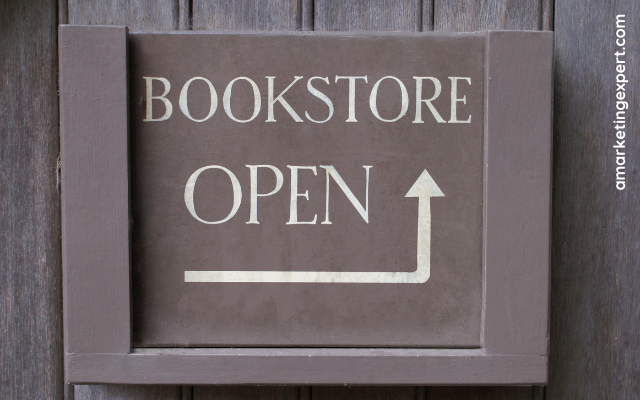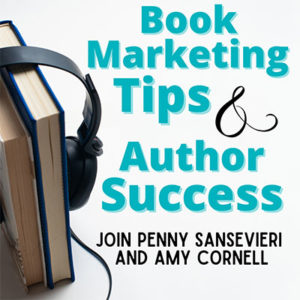Let’s face it, self-publishing is a thrill ride with a lot of ups and downs. You’ve poured your heart and soul into your book, built your online author platform, and maybe even racked up some impressive Amazon rankings. But there’s one elusive peak every author dreams of scaling: brick-and-mortar bookstores. Those physical shelves teeming with stories hold a unique charm, a legitimacy that whispers, “I made it.”
There’s a belief among authors that bookstores won’t carry self-published books. I’m living proof that that isn’t true, as are many of the authors I work with. There is nothing wrong with self-publishing a book – so long as it doesn’t look stereotypically self-published, and we’ll cover that too.
And true, figuring out how to sell self-published books to bookstores isn’t a walk in the literary park. It requires persistence, strategy, a great book, and a touch of marketing magic. So, let’s dig into how to turn your self-published gem into a bookstore mainstay.
Know the Marketplace
While you may dream of seeing your book on the shelves of every Barnes & Noble bookstore, here’s a statistic that may change your mind: independent bookstores account for nearly 40% of all book sales in the US. Cozy up to them first! Research local shops – their genre focus, customer base, and even their return policies. A gritty crime thriller won’t fly in a children’s bookstore.
Shop them, get to know the manager or book buyer.
Remember your Elevator Pitch
We did a podcast on elevator pitches which is worth a listen. An elevator pitch highlights your book’s unique selling points (think “quirky rom-com with a dash of AI gone rogue” rather than “just another love story”). But bookstores love elevator pitches. Don’t send any long-winded pitches or press releases, don’t force the bookstore to figure out what your book is about, and pique their interest with a well-written elevator pitch. If you have reviews from known outlets and sources, list those as well.
Emphasize Your Local Connection
Bookstores love helping local authors and often encourage local authors to contact them for book placement. Many bookstores have “local author” tables or shelves. But local is the key. If you don’t live locally but your book has a strong connection to a city or area, contact those local stores and make the connection very clear. Sure, you can get books placed in specialty indie stores with no local connection, but it’s a bigger ask and often a harder thing to do. So start with the more direct options and expand from there.
Your Packaging Matters
I’m not just talking about your book cover, but your presentation to the bookstore matters. While a lot of the pitches are done via email, you will at some point need to drop off your book and whatever collateral pieces you have. Think: author one sheet, so a sheet all about you, the author, and the book one sheet, which includes the ISBN, and other pertinent data booksellers care about.
Distribution Matters
Most bookstores work with distributors like Ingram so be sure your book is listed there. Doing so will make you accessible to a vast network of brick-and-mortar shops. If your book is exclusive to Amazon, meaning it’s listed there and nowhere else, that’s a problem for bookstores – so this is something you’ll want to reconsider for your next release.
Thinking Beyond the Sale
Bookstores love events with local authors and it’s often a great way to get your book on their radar screen and on their shelves! Offer to do a reading, book signing, Q&A, or even a writing workshop. This not only gets your book in front of potential readers but also builds relationships with the store and its staff.
The key to getting stores interested in an event is focusing on their clientele. I know you’re focused on your book, but you’re more likely to get a yes if you can convince them it will be an experience their shoppers can get excited about.
Show You’re Invested
The biggest issue that bookstores face when stocking indie-published books is that often no one knows they’re there. This is why your commitment to the bookstore should be to promote your book. Have a plan to pitch local media. Promote the local angle on social media. Be sure to add it to your website and direct visitors to the store. Show booksellers you’re invested in their success, and they’ll be more likely to invest in yours.
Patience is a Virtue
Getting your book on shelves takes time, effort, and maybe a few polite follow-ups. Don’t get discouraged; keep showcasing your author hustle and building those bookstore relationships.
Remember: Persistence, professionalism, and a sprinkle of local charm are your secret weapons. Many times, bookstores may love to carry your book but the current buying season is already spoken for, so be patient and start early, or ask when you should follow up. I know that many big New York publishers start pitching their Fall books in March, so keep in mind that if you’re pitching on top of a season (like pitching a thriller book to a bookstore a week before Halloween), it may be too late to get it on the shelves.
Bonus tip: Offer bookstores a competitive discount and favorable return policies. You’re a small business too and understanding theirs goes a long way.
Resources and Free Downloads
Download our free monthly book marketing planner.
Download our free Reader Profile Brainstorm.
Our podcast episode on elevator pitches.
7 best ways to promote your book.
A helpful list of book awards and contests.
Proven strategies to increase sales potential on Amazon.
Amazon Book Marketing: Four Powerful Preorders that Won’t Cost you a Dime
Why your Amazon reviews are getting pulled and what to do about it.
Check out all the episodes of our book promotion podcast anywhere you listen to podcasts!
Be sure to sign up for our newsletter on the right-hand side of our blog homepage. If you haven’t opened a recent one your registration may have lapsed.
Follow us on Instagram for book marketing tips and some much-needed levity!





0 Comments